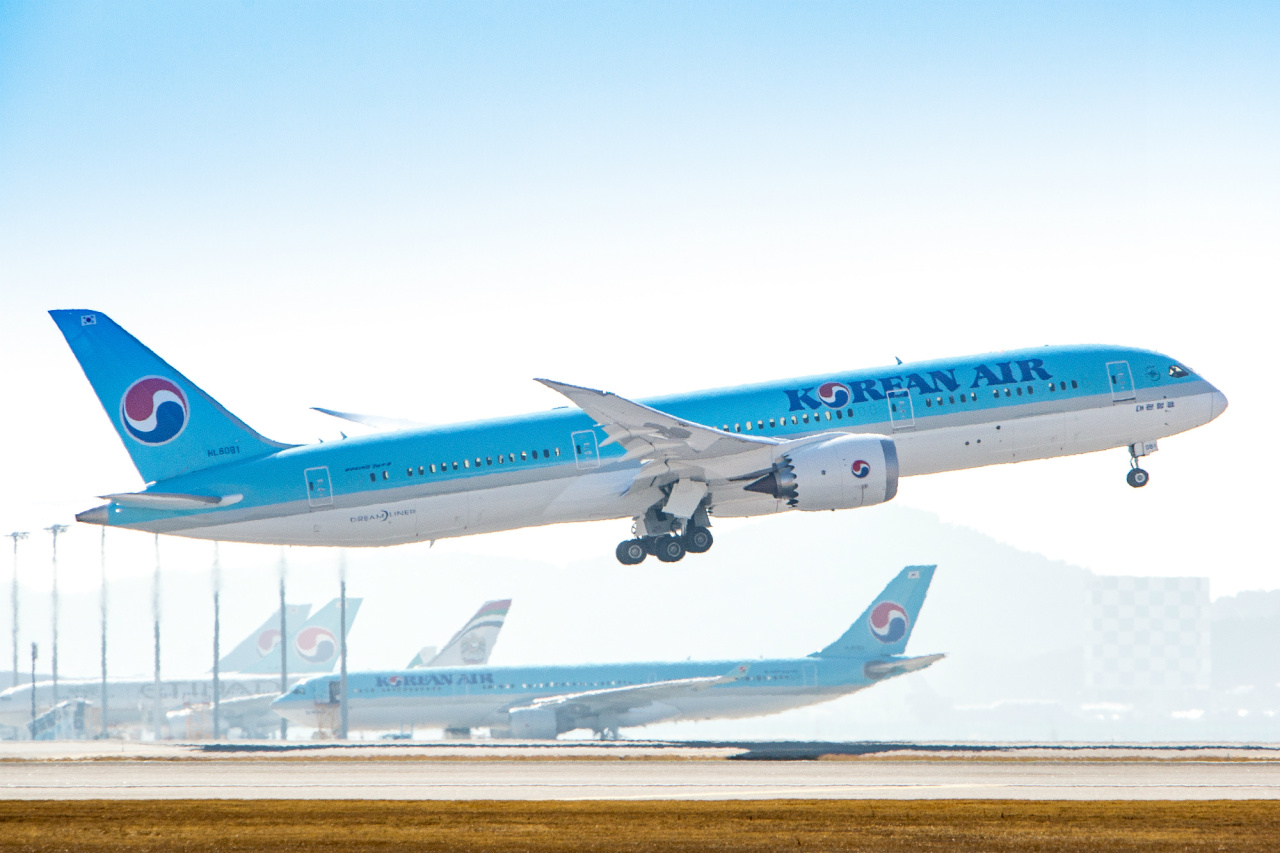South Korea will have a mega carrier ranking as one of the world’s top 10 by fleet, following the country’s No. 1 carrier Korean Air’s decision to acquire its close rival Asiana Airlines on Monday.
In the past months, Kumho Industrial struggled to find a new owner for Asiana, the country’s second biggest carrier. Most recently, its attempt to sell it to HDC Hyundai Development, a local property developer, collapsed amid the COVID-19 pandemic.
On Monday, Korean Air and its holding company Hanjin KAL said it had decided to acquire Asiana Airlines, purchasing a 30.77 percent stake of Asiana Airlines by issuing new shares of 2.5 trillion won.
The state-run Korea Development Bank said it would invest 500 billion won in shares issued by Hanjin KAL and 300 billion won in the company’s convertible bonds.
In a statement, Korean Air Chairman Cho Won-tae said his company made the decision to support sustainable growth of the aviation industry.
“Korean Air is suffering difficulties with the COVID-19 pandemic. But we made our decision for sustainable growth of the country’s aviation industry and to lessen the burden (of the people) and minimize injection of public funds,” Cho said.
Cho said he would work to unite the two companies and ensure equal rights for employees without any discrimination.
With Monday’s decision, South Korea’s aviation industry will have one mega airline that dominates the country’s aviation industry, and position itself among the world’s top 10 carriers.
For decades the Korean aviation industry has been led by the two market leaders, since Korean Air was established in 1969 and Asiana Airlines in 1988.
But Asiana Airlines was plagued by financial instability even before the COVID-19 pandemic, and was put on sale in July last year.
While the discussion was initiated between Kumho Industrial and a consortium led by HDC Hyundai Development Co., the deal fell through amid the deteriorating performance of Asiana Airlines in the wake of the pandemic.
In the first six months of this year, Asiana reported operating losses of 265 billion won, and debts of 11.5 trillion won.
While concerns remain on the profitability of the two merging companies, Hanjin said it sought to gain competitiveness with the expansion of routes and fleet capacity.
“When Korean Air completes the acquisition of Asiana Airlines, the company is expected to rise to be among the world’s top 10 airline,” Hanjin said.
According to International Air Transport Association’s 2020 data, Korean Air ranked No. 19 and Asiana Airlines No. 29 in terms of passenger and freight transportation service. When combining the two companies’ performance, they round up to the world’s No. 7.
There are also concerns here about the fairness of the acquisition of the two major carriers, as the number of passengers the two companies take for domestic flights added up to 42.2 percent as of the end of last year -- Korean Air posted 22.9 percent, with Asiana Airlines at 19.3 percent.
Considering that the two carriers also own low-cost carriers -- Korean Air’s Jin Air and Asiana Airlines’ Air Busan and Air Seoul -- they carried 62.5 percent of passengers here.
Korean Air is expected to push for restructuring and mergers of its affiliates in the future, an official from the carrier told The Korea Herald.
“Ultimately, the goal would be to completely unite the two companies, so you can expect that the brand, Asiana Airlines, will not be maintained,” the official said.
KDB Vice President Choi Dae-hyun also told reporters that Hanjin plans to merge Jin Air, Air Busan and Air Seoul in phases.
With the plan inviting varying reactions from the market, including a protest from private equity fund KCGI, the decision was immediately lambasted by the labor unions of the two airlines, despite the creditors’ assurance that there will be no layoffs.
“The decision that overlooks the voice of laborers must be rescinded,” the five labor unions said in a joint emergency meeting.
“(The airlines) are turning the blame for its failed management to the laborers using COVID-19 as an excuse and are seeking to solve the problem using taxpayers’ money. They must stop such collusion with the government immediately,” they said, demanding they discuss the measure from square one through a consultative body that includes the workers.
By Jo He-rim (
herim@heraldcorp.com)








